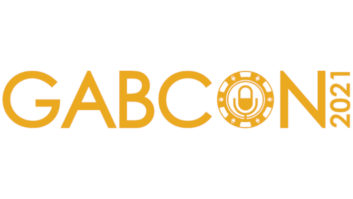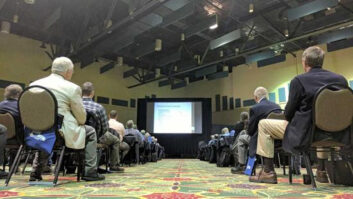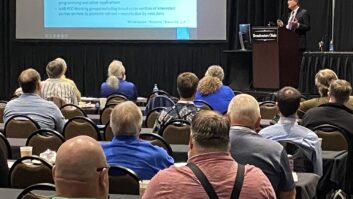A chorus of broadcast organizations wants the Federal Communications Commission to revamp its equal employment opportunity rules.
The National Association of Broadcasters, state broadcast associations and other broadcasters filed separate and group comments, calling the rules that govern how broadcasters must go about advertising job vacancies “antiquated” and “anachronistic.”
The time has come to modernize the commission’s EEO policies rules to better reflect today’s employment marketplace, wrote the NAB in a comment filing as part of Media Bureau Docket No. 16-410.
“Given that the vast majority of Americans today use the Internet as their primary, if not sole, source for information about job opportunities, updating the commission’s current approach to permit Internet-only recruitment is long overdue,” the association stated. “Most importantly, updating this policy will serve the public interest by aligning broadcasters’ practices with the expectations and practices of job seekers.”
The current EEO rules, set by the commission in 2002, require broadcasters that are filling vacancies to conduct broad outreach throughout the broadcaster’s local community. While the commission left particulars of compliance to a broadcaster’s discretion, the NAB said the example the FCC offered — placement of a vacancy announcement in a widely circulated local newspaper every day for a week — has served as the commission’s baseline ever since.
But the world has changed dramatically since the commission adopted the EEO policies in 2002, the NAB argued. “Top-ranked websites such as LinkedIn, YouTube and Facebook did not yet exist, and widespread adoption of smartphones was still seven or eight years away.” Today, 77 percent of Americans have a smartphone, and as of 2014, 73 percent of U.S. households had a computer with a broadband connection to the Internet, the NAB said.
Separately, a group of state broadcasting associations told the FCC that the time has come to revisit the statute.
“While the commission felt that the Internet was not sufficiently mature in 2002 to rely upon as an exclusive recruitment tool, there can be no serious debate that it achieved the needed maturity long before 2017,” the group wrote. “[T]he commission should have years ago ceased faulting broadcasters utilizing Internet-based recruiting.”
The original petition for rulemaking, filed in December by Sun Valley Radio Inc. and Canyon Media Corp., asked the FCC to let broadcasters rely on Internet recruitment sources and on-air advertising for publicizing employment positions.
But at least one group thinks even that’s too much, arguing hat an Internet-only requirement is sufficient and that the FCC should not compel an additional on-air announcement requirement. “There is no need to impose any additional burden on the recruitment practices of broadcasters, such as affirmatively mandating on-air announcements of job openings,”wrote a group of broadcasters that includes Alpha Media, Emmis Communications Corp. and New York Public Radio.
“The commission should move forward with modernizing its interpretation of its EEO rules and recognize that in today’s marketplace, it is possible to widely disseminate job opportunities solely using Internet sources,” the broadcasters wrote. It should not sacrifice flexibility in the name of modernization. “The EEO rules can reflect the realities of the 21st century without rigidity.”
A filing by numerous noncommercial educational broadcasters states that “old-school” outreach services are outdated, cumbersome and costly, and do not yield candidates for job vacancies. “It is, essentially ‘make work’ regulation for broadcast stations without a corresponding benefit to the public,” wrote the group, which includes comprises licensees such as Nashville Public Radio, the University of Oklahoma and James Madison University.
A similar comment was filed by nine broadcasters that include Beasley Media Group, Entercom Communications Corp. and Scripps Media. Web posting is the most efficient and cost-effective means available for all concerned, “which is why it has displaced other mechanisms as the predominant means of connecting employers with job seekers,” they wrote.
The Multicultural Media, Telecom and Internet Council wants the commission to go further and conduct a comprehensive, holistic review of its entire EEO compliance program. “The question of whether broadcasters may use the Internet for job search is but a modest part of the greater questions of whether the commission’s EEO enforcement program meets the public interest test Congress has assigned to it the commission,” MMTC argues.
As such, the MMTC said the commission should not regard the question posed by the Sun Valley Petition as the end of the agency’s consideration of EEO. Instead, the petition should mark beginning of a comprehensive modernization of the EEO program.
Reply comments are being accepted until Feb. 14.












